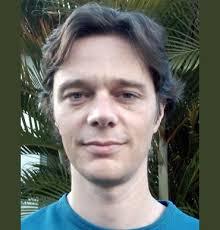WESAAC 2015 - Palestras Convidadas
Prof. Cristiano Castelfranchi
Institute of Cognitive Sciences and Technologies (ISTC), Itália
 Cristiano Castelfranchi is Director of the Institute of Cognitive Sciences and Technologies (ISTC) of the National Research Council, in Roma. A cognitive scientist with a background in linguistics and psychology, he is active in both the Multi-Agent Systems, the Social Simulation, and the Cognitive Science communities. Program chair of the First International Joint Conference on Autonomous Agents and Multi-Agent Systems (AAMAS 2002). Research fields of interest include cognitive approach to communication (semantics and pragmatics); cognitive agent theory and architecture; multi-agent systems; agent-based social simulation; social cognition and emotions; cognitive foundations of complex social phenomena (dependence, power, cooperation, norms, organization, social functions, etc.). Professor Castelfranchi has published more than 200 conference and journal articles on cognitive, computational and formal-theoretical models of social interaction and social mind, and 12 books in Italian.
Cristiano Castelfranchi is Director of the Institute of Cognitive Sciences and Technologies (ISTC) of the National Research Council, in Roma. A cognitive scientist with a background in linguistics and psychology, he is active in both the Multi-Agent Systems, the Social Simulation, and the Cognitive Science communities. Program chair of the First International Joint Conference on Autonomous Agents and Multi-Agent Systems (AAMAS 2002). Research fields of interest include cognitive approach to communication (semantics and pragmatics); cognitive agent theory and architecture; multi-agent systems; agent-based social simulation; social cognition and emotions; cognitive foundations of complex social phenomena (dependence, power, cooperation, norms, organization, social functions, etc.). Professor Castelfranchi has published more than 200 conference and journal articles on cognitive, computational and formal-theoretical models of social interaction and social mind, and 12 books in Italian.
Título (em inglês): The Role of Agents & MAS in the future Hybrid Augmented Society
Resumo (em inglês): What you are building is not a new "technology" but - obviously - a new Socio/Cognitive-Technical System; you are "social engineers". Computer mediated human interaction, H-C(Ag) interaction, H-R, and Ag-Ag interaction need to be a fully social interaction, not just for ergonomic reasons (simplicity, dependability, acceptance) but because the emergent connection, communication, cooperation, organization, etc. is the real computational machine and new distributed and hybrid collective intelligence. This fully social interaction means social cognition (like mind reading, mind shaping and manipulation, scripts, games and social practices, norms, identities and categories, etc.) and social motivation (power, morality, conflict, alliance and help, ... obedience, joint intentions, membership, ...). Will this new coupled and augmented reality, will this new collective hybrid intelligence improve human intelligence, reduce stupidity, ignorance, alienation, marginalization, exploitation? How the Ags populating this world with us should be in order to improve our social and cognitive condition? Will our collective use of the intelligently supported network help for negotiation, participation, learning and decision, and for planning, and for democracy; or will it just create conditions for a massive mass-psychology and gregariousness and consumerism? Will this new impressive omnipresent intelligence be for better governing spontaneous dynamics and complexity? Or the explosion of sociality will just be the new business and merchandise of financial capital? Which are the theoretical ingredients for founding the future Hybrid (human-artificial) sociality and intelligence? This is the central topic of my talk. Moreover, Ags and MAS will be a revolution for the Social and Behavioral sciences; they will create (with a contribution at least as important as that of Big Data) the new Computational Social Sciences; since they are not just providing new formal and experimental tools (platforms, architectures, simulation, ...) and new data for verifying the assumptions of the existing behavioral theories, but new conceptual and modeling tools. Cognitive and social theories will be changed.
Prof. Jomi Fred Hübner
Universidade Federal de Santa Catarina (UFSC), Brasil
 Jomi Hübner is a Professor at the Department of Automation and Systems Engineering, Universidade Federal de Santa Catarina (UFSC), Brazil. He received a Computer Science degree from Fundação Universidade Regional de Blumenau, a M.Sc. degree in computer science from the Universidade Federal do Rio Grande do Sul and a Ph.D. degree in computer science from Universidade de São Paulo. Research fields of interest include Organisation modelling for Multiagent Systems and Programming languages for autonomous agents.
Jomi Hübner is a Professor at the Department of Automation and Systems Engineering, Universidade Federal de Santa Catarina (UFSC), Brazil. He received a Computer Science degree from Fundação Universidade Regional de Blumenau, a M.Sc. degree in computer science from the Universidade Federal do Rio Grande do Sul and a Ph.D. degree in computer science from Universidade de São Paulo. Research fields of interest include Organisation modelling for Multiagent Systems and Programming languages for autonomous agents.
Título: Programação Normativa em SMA
Resumo: A programação de sistemas multiagentes (SMA) tradicionalmente tem dado enfoque à programação dos agentes destes sistemas. Entretanto, um SMA pode ser concebido e visto sob outras perspectivas, como suas instituições, normas e ambiente, de forma independente dos agentes. Em especial, nos SMA abertos, onde os agentes não são necessariamente programados pelo conceptor do sistema, a sua programação deixa de ser uma questão fundamental. Uma perspectiva que merece uma investigação mais aprofundada na direção de soluções alternativas, é a programação das normas do SMA como um mecanismo de determinação do seu comportamento. A palestra irá apresentar e discutir alguns trabalhos nesta perspectiva, procurando abordar (de forma geral) desde questões conceituais até linguagens de programação e seus interpretadores.
Profa. Aline Marins Paes Carvalho
Universidade Federal Fluminense (UFF), Brasil
 Aline Paes is a Professor at the Computer Science Institute, Universidade Federal Fluminense (UFF), Brazil. She received a Computer Science degree from Universidade Federal do Rio de Janeiro, with a Sandwich Doctorate scholarship at Imperial College London, UK. Research fields of interest include Machine Learning Algorithms, Machine Learning applications in Semantic Web, Knowledge Representation, Games and Cognitive Networks.
Aline Paes is a Professor at the Computer Science Institute, Universidade Federal Fluminense (UFF), Brazil. She received a Computer Science degree from Universidade Federal do Rio de Janeiro, with a Sandwich Doctorate scholarship at Imperial College London, UK. Research fields of interest include Machine Learning Algorithms, Machine Learning applications in Semantic Web, Knowledge Representation, Games and Cognitive Networks.
Título (em inglês): Revising the Knowledge of Multi-Agents from Examples: Challenges and Prospections within Probabilistic Logic Programming
Resumo (em inglês): First-order theory revision deals with the problem of fixing a possibly incorrect and/or inconsistent knowledge expressed as a logical theory by using a set of positive and negative examples. Theory revision has its roots in Inductive Logic Programming, which is a field of relational machine learning that has as main goal to induce logical programs from examples. In theory revision, the examples are used not only to point out that the theory is faulty but also to identify the points in the theory that are responsible for such failures. Recently, first-order theory revision has been enhanced to handle uncertain information by tackling probabilistic logic programs. However, in a number of domains such as the semantic web, sensor networks, and collective intelligence, the knowledge base is not only structured and uncertain but also distributed and heterogeneous. These characteristics demand the employment of methods and strategies developed in the field of multi-agent systems when revising distributed probabilistic programs, especially regarding the frameworks developed in multi-agent belief revision. In this talk, we are going to present previous work in these and others related areas and discuss how the recent developments of them can contribute to each other aiming at solving the problem of fixing and sharing information in distributed scenarios.